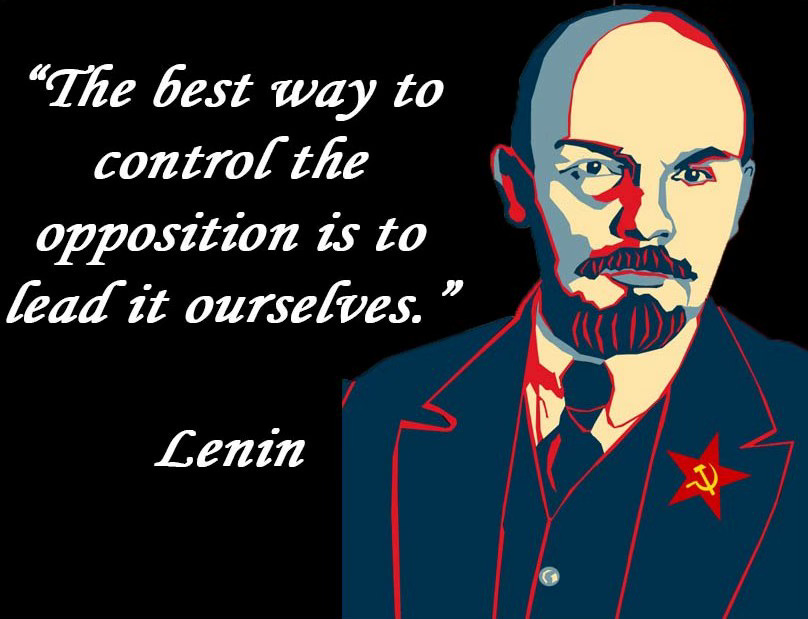Controlled Opposition

Thoughts on Beautiful Losers by Sam Francis.
You’ve heard the old stories of some powerful king who becomes troubled by prophecies that his newborn son (or grandson) would overthrow him and assume his throne. So the king orders an execution. But inevitably the officer in charge cannot go through with it and instead takes the baby to a shepherd, commanding him to leave the helpless child exposed to the elements and the wilderness. And because the shepherd also cannot go through with it, the child lives to fulfill the prophecy.
Imagine a version of that story updated for our democratic times. Large numbers of spirited boys are deemed threats to the Ruling Elite. The problem is that it would be unseemly to kill all of them, so instead the Regime employs officials who specialize in miseducating the youth: classroom teachers, TV producers, marketers, clergymen, people whose job it is to leave you woefully underdeveloped and to turn you into a ghost of what you could have been.1 Though not otherwise impressive, these functionaries are very good at their jobs of rendering you harmless.
A sensitive young man’s life in the late-20th/early-21st century becomes a dystopian tragicomedy. The faith of his fathers is “modernized” and “democratized” and made obnoxious. The heroes who would have stirred his soul are “problematized” and swapped out for protestors and agitators. The ideals he would have aspired to are hidden from him—the way old school chivalry was stripped of all the invigorating stuff (elite physical prowess, Christian devotion, ride-or-die loyalty) so that only politeness and holding doors open for ladies remained.
The upshot of the contemporary order is that everything, like bogus modern “chivalry,” is made mostly fake-and-ghey and you are pretty bored by it.
Then There’s Politics
But the most ingenious part of the program is the directing of discontented energy down fruitless paths, so that even if you rebel it will likely be in a pre-approved ways. You are like a stream rerouted toward a lonely and scorching desert, where your intensity evaporates and disappears. Better yet, the stream is made to water nasty shrubs and weeds along the way.
When one looks even halfway closely, the whole Post-War “conservative” movement shows itself to be little more than a masterful misdirection of oppositional strength, so that it serves the demands of Progress and Our Sacred Democracy. I write this as a recovering dumbass who, largely out of boredom and frustration, got into GOP politics, read National Review, proclaimed the miraculous power of the Free Market, defended the Forever Wars launched by neoconservatives, and so on. Then I graduated to a smarter though equally useless trad arc, reveling in the Permanent Things but ultimately suffering from what Charles Haywood calls “Scrutonism”: “the untamable, desperate desire to be a beautiful loser, to risk nothing, but to sit in empty churches, musing on past glories.”
For the past few years I’d been looking for a book to help me better understand the trap into which I had fallen. In the search I came across Sam Francis’ Beautiful Losers: Essays on the Failure of American Conservatism. Francis’ claim is that conservatism has brought itself to “virtual extinction” by putting unreasonable faith in the proverbial marketplace of ideas, as though whoever presents the best syllogisms and abstractions will necessarily win hearts and minds. This explains the passive and ineffectual character of so many conservatives who “always seemed to assume that it was only a matter of time before their own beliefs would creep up on the ideas of the Left, slit their throats in the dark, and stage an intellectual and cultural coup d’état, after which truth would reign.” The metaphor is funny because a conservative is someone almost temperamentally incapable of lifting a finger to stop his opponents, and who instead puts all trust in his ideas to do the unsavory work for him.

Francis’ collection of essays—written mostly between 1981 and 1991—is uncannily timed to coincide with two decades of severe American decline. As the Left slowly lost touch with sanity, conservatives had little more to offer than a mix of market-fundamentalism (which warped into worship of Big Business and fake metrics like GDP), patriotic warhawking (which spilled appalling amounts of blood and treasure in pointless wars), and a commitment to a few old stalwart issues like the right to life and the right to own a firearm (which fared slightly better by comparison). But never did it put forth a compelling vision. Prior to Donald J Trump’s run in 2016, the five previous GOP nominees for president might as well have been hand-selected by the Left: Bob Dole, George W Bush (2x), John McCain, and Mitt Romney. Until the mid-2010s, things weren’t yet alarmingly bad, but the accumulated capital of the past was dwindling and disaster loomed on the horizon.
And here we are today. What Francis wrote decades ago has only become truer with time: “The result is an economy that does not work, a democracy that does not vote, families without fathers, classes without property, a government that passes more and more laws, of people that is more and more lawless, and a culture that neither thinks nor feels except when and what it is told or tricked to think and feel.”
Managerialism, Neoconservatism, Will, McCarthy, King
Francis’ most useful commentary is on managerialism, neoconservatism, George Will, Joseph McCarthy, and Martin Luther King Jr. A few notes on each of these.
No understanding of our times is possible which doesn’t grapple with the managerial revolution of the 20th century. Major work was done in the 1940s by James Burnham to make these fundamental developments better known, but that knowledge was largely lost by the turn of the century. And one wonders if it was lost deliberately. As a young man I was schooled in the principles of conservatism without hearing a word about managerialism.
Instead we heard a lot about the power of The Market to solve our problems, if only we got out of its way. What’s curious is that the laws of The Market largely cease to apply under the separation of ownership and control that defines the “private sector” in managerial times. In other words, those big corporations are no longer run by founders, or descendants of founders, or even those who own the largest stake; they’re run by cosmopolitans with MBAs whose priorities always happen to align with other managers in the public or private sectors, rather than the owners. That’s why Disney and Bud Light are no longer in the business of actually satisfying their customers.
Francis very clearly explains how the revolution developed in response to the problems of scale that had become undeniable by the early 20th century, as “the increasing massiveness of American society appeared to demand new organizational forms of control.”
The imperatives of mass scale in the economy, in government and politics, and in social and cultural life gave rise to a new elite that found its principle power base in bureaucracy. In both the public and private sectors, the bureaucratic, organization of power and control appeared to be the only means of ruling modern mass units … But there was no fundamental difference between the interests of the bureaucrats of the public sector and those of the private sector. Both bureaucratic realms shared a common mentality: a rationalistic faith in administrative and manipulative techniques as a means of holding and exercising power.
It’s no mere figure of speech to call this development a “revolution.” Francis describes the 20th century as “an age of revolution of far more profound transformational effect than any the modern world has ever experienced.” Managerialism didn’t simply change the structures of power, but altered everything that trickled downward from those new structures. The managerialists “rejected or regarded as backward, repressive, or obsolete the institutions and values of traditional and bourgeois society—its loyalties to the local community, traditional religion, and moral beliefs, the family, and social and political differentiation based on class, status, and property—and it expressed an ideal of man ‘liberated’ from such constraints and reeducated or redesigned into a cosmopolitan participant in the mass state economy of the manager system.” Similar things came to pass in all varieties of organizations: labor unions, churches, educational institutions, the military, the media, and more.
This revolution left conservatives and traditionalists deeply confused. It’s hard to know what you’re conserving—and how you’re going to do it—when the world has changed before your eyes and the old rules no longer apply. Even the word conservative no longer described realities on the ground, since the managerialists were the new Establishment and the ones with something to “conserve.”
Against this backdrop of revolution, Francis explains, the so-called neoconservatives entered to deepen the confusion and undermine any kind of opposition.
The members of this movement were memorably described by Irving Kristol as former liberals who had been “mugged by reality.” But their origin story is a little more troubling, Francis argues. Their aim was really “to adapt and reformulate liberalism for a more effective support of managerial institutions and hegemony.” They tended to be academics and urbanites, mostly from the Northeast, frequently at odds with the interests of the Heartland and the South, and “noticeably reticent in their opposition to the welfare state and their critique of liberal ideology.”
In other words, neoconservatives are mostly just liberals who migrated to our side and attempted to reshape it. This process that began with Kristol’s generation continues in our times with Joe Rogan and Dave Rubin—the kind of people who say “I didn’t leave the Left, the Left left me.” Something about the conservative temperament necessarily goes agog over high-profile defectors from the other side. It would be one thing if the defectors had a genuine change of heart, but that’s rarely what happens. The crazier the Left gets, the more people abandon ship, but those who jumped then pull the Right further left.
To vary the metaphor: imagine what would happen to the army which eagerly appoints deserters from the enemy camp to positions of power and influence. It’s a cartoonishly bad idea, and yet this is how the conservative opposition operates. With the rise of George W Bush, neocons eagerly took control of the levers of political power and steered the country into the disastrous War on Terror—which among other consequences discredited the Republican Party and handed the country over to Barack Obama in the 2008 election.
Francis’ essay on George Will runs with some of these themes. Will is the archetype of the sophisticated “conservative” who appears to be offering an alternative to the Left but whose real purpose is to punch right and police the borders of acceptable opposition thought, ultimately defending liberal ideals, institutions, and innovations on conservative terms. He was David French before David French, making “The conservative case for __________ [insert: something not conservative].”
What makes people like Will, French, and others so valuable to the Left is their desire for status, which has been conferred in Post-War times almost exclusively by the Left. These actors are given a stipend and a roped-off area under the Regime’s tent where they play-act at rebellion. Of course if they actually posed a threat, they would quickly have their privileges stripped, as happened to Pat Buchanan. Francis writes of Will:
It is because he accepts, and wants to be accepted by, the ‘achievements’ of modern liberalism and their champions that he ignores or sneezes at the serious conservative thinkers and leaders of our time who have sought to break liberal idols and voices no criticism of the powers that support those idols. It is therefore not surprising that his commentary is welcomed in and rewarded by liberal power centers. They have little to fear from him and his ideas and much to gain if his version of ‘conservatism’ should gain currency. He enjoys every prospect of a bright future in their company.
This essay was particularly devastating for yours truly because—if I’m being honest with myself—I remember a time when I (during my trad arch) grew overly impressed with leftist prestige and was eager to distance myself from the uncouthness of GOP-types. What Will was responding to was a very real impulse or incentive within the Post-War political order.
Unlike George Will, Joseph McCarthy posed an actual threat to Leftist power. And thus he had to be destroyed. Francis argues that “The real reason for the hatred borne by the name of Joe McCarthy has little to do with the evil that is attributed to him or with his uncompromising anticommunism but rather with what he discovered about the forces—the people, ideas, and institutions—that by 1950 had come to dominate American government and public discourse and with what he communicated and exposed to the American people about those forces.” He embarrassed them, and suffered accordingly. They “transformed him into the demonic embodiment of evil that moves among us even today.”
This episode of American history points to an obvious conclusion about the Post-War Consensus that liberals didn’t want discussed: their sympathy toward Communists. Yes, the US was technically in a Cold War against the USSR and liberal individualism was supposed to oppose collectivism, but these ideologies share crucial traits: “in particular,” Francis writes, “the idea that human beings are the products of their social environment and that by rationalistic management of the environment it is possible to perfect or ameliorate significantly the human condition and indeed man himself.” In other words, both are utopian.2
If McCarthy had not been so close to the mark, there would have been no need to tarnish his name so thoroughly. And in the wake of McCarthy, efforts were made to formulate a more “respectable” and “responsible” conservatism—and one that posed less of a threat to the Regime. Here’s where George Will and the neocons and others came in.
This more responsible conservatism requires proper veneration and lip service to Regime heroes. In “The Cult of Dr King”—written in 1988—Francis makes the case that worshipfulness of the man has to stop, especially from the Right. King said some nice things about judging people by the content of their character, but he also said things that should should make you wonder. Consider the lines from the same speech about exalting every valley and making low every hill and mountain. We overlook these because we like the feelgood stuff about character, but Francis recommends a little more wariness toward the “militant egalitarian universalism” underneath the warm sentiments. “Once the United States, through its national government, chose to adopt Dr King as an official hero, neither the American people nor its leaders had any legitimate grounds to resist the logic and dynamic of such forces [as militant egalitarian universalism] and the radical reconstruction of American society that is implicit in them.” King is among the agitators chosen to replace the real heroes that we were supposed to be devoted to.
Thus the Civil Rights Act became the country’s new constitution, abolished freedom of association, and ushered in wave after wave of similar reforms to address the grievances of any interest groups against straight males of European descent.3 Conservatives lost all ability to object to the obvious problems of these reforms other than with language that accepts Regime premises: “Leftists are the real racists/sexists/homophobes.” This is how controlled opposition talks.

Conclusion
Francis’s destiny bears out his argument. In 1995 he was fired from his post as a columnist for the Washington Times after Dinesh D’Souza shined a light on some “problematic” views—what Paul Gottfried calls Francis’ “unwillingness to take polite stands on delicate issues.” The gatekeepers he despised—the conservatives who had mostly failed to conserve anything—had tossed him out, just as they’d done to Pat Buchanan. And yet that was not the last word, for both Buchanan and Francis have shaped the rise of a new opposition, this one with actual teeth.
In the old stories the child ultimately lives to fulfill his destiny. We shall see whether this plays out in our times. The good news is that the Regime’s brutal method of spiritually castrating the opposition will not be nearly so effective moving forward, thanks largely to the loss of a chokehold on the narrative.
The bad news is that it’s unclear whether the discovery comes in time. Those decades in the dark wood of error have a real cost, on both the personal and the national level. It’s great that we are finally waking up from our slumber, but more than a little nerve-wracking to waking to the sounds of a Code Red alarm and facing existential doom.
But it’s probably always been thus. The comfort I take is in my conviction that the wake-up call originated from God Almighty, who saw fit to give us a chance to rise above the trouble that dogs the past. One must fight on accordingly.
https://thechivalryguild.substack.com/p/controlled-opposition
